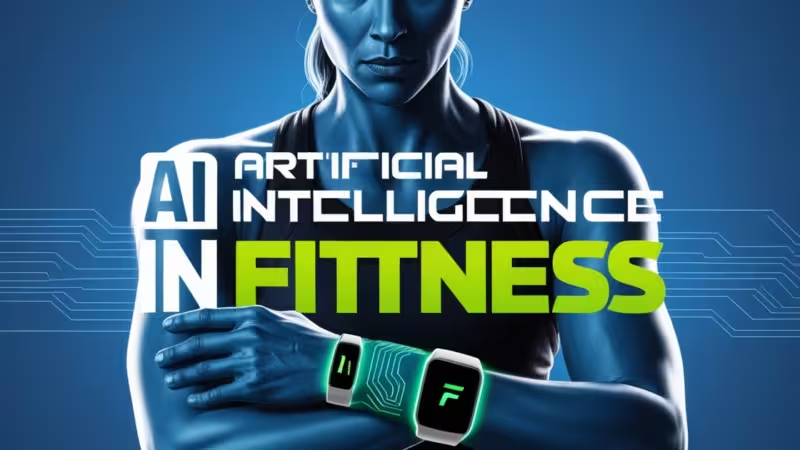Wearable Devices and AI in Healthcare

The Convergence of Wearable Devices and AI in Healthcare
The healthcare field has been shifting gears towards digital transformation, with the fusion of wearable devices and artificial intelligence (AI) significantly changing how we monitor and care for patients. Today’s wearable gadgets like fitness trackers, smartwatches, and medical-grade sensors are not just fancy tech toys; they are getting smarter and more capable of collecting essential health data continuously. When these devices team up with AI’s analytical prowess, healthcare professionals gain remarkable insights, enabling them to make informed decisions and deliver personalized, proactive care to their patients.
Enhancing Patient Monitoring and Diagnosis
A major way we’re seeing wearable devices and AI being utilized is through patient monitoring and diagnosis. These handy wearable sensors keep tabs on a variety of biometric metrics like heart rate, blood pressure, oxygen saturation, and physical activity levels. By putting this data through AI algorithms, healthcare providers can catch early warning signs of health problems, recognize patterns, and keep track of chronic diseases. This kind of real-time observation not only allows for quicker responses but also enhances management of diseases and leads to better overall patient outcomes.
Personalized Treatment and Care Plans
The mix of wearable devices and AI also opens the door for customized treatment and care strategies. Analyzing the data from a patient’s wearables gives healthcare operators a clearer picture of that individual’s health profile, lifestyle choices, and how they respond to therapies. This valuable insight can then be used to fine-tune medication dosages, suggest lifestyle modifications, and adjust care recommendations, ultimately boosting treatment effectiveness and enhancing the patient’s well-being.
Proactive and Preventive Healthcare
There’s another significant advantage linked to the fusion of wearable technology and AI in healthcare: the shift toward a more proactive and preventive model. With continuous monitoring of health data, AI systems can spot potential health dangers or the early onset of diseases before they escalate. This kind of early detection empowers healthcare professionals to take action sooner, implement preventive strategies, and possibly avert serious health setbacks.
Improved Chronic Disease Management
For patients managing chronic illnesses like diabetes, heart disease, or Parkinson‘s, the integration of wearable devices and AI is especially beneficial. These technologies help individuals monitor their conditions more effectively by offering real-time feedback, sending medication reminders, and providing personalized advice. Plus, healthcare providers can harness the data from wearables to refine treatment strategies, ensure patient adherence, and make better-informed care decisions.
Challenges and Considerations
Now, even though the intersection of wearable devices and AI in healthcare holds tremendous potential, we can’t overlook the challenges and considerations that come with it. Data privacy and security are paramount concerns; after all, sensitive health information needs to be handled with extreme caution. Plus, it’s essential to evaluate the reliability and accuracy of the data collected by wearables and consider the ethical ramifications of AI-driven decision-making within the healthcare environment.
Enhancing Patient Outcomes with Intelligent Monitoring
The Rise of Wearable Devices and AI in Healthcare
The healthcare sector has indeed seen a notable transformation lately, all thanks to wearable devices and artificial intelligence (AI) coming together. This technological shift is set to redefine patient care, paving the way towards better health outcomes and an improved quality of life.
Wearable Devices: Revolutionizing Patient Monitoring
The Power of AI in Healthcare
On the heels of the surge in wearable devices, AI’s integration has proved revolutionary for healthcare. Smart algorithms can sift through the enormous data generated by these devices to spot trends and flag possible health issues before they worsen. This kind of predictive ability means healthcare providers can jump in sooner, addressing concerns proactively and minimizing the likelihood of serious complications.
Enhancing Patient Outcomes
The partnership of wearable technology and AI is driving impressive improvements in patient outcomes. Continuous monitoring of health data allows healthcare providers to develop a well-rounded view of an individual’s health status, enabling them to create personalized and more effective treatment plans that truly resonate with each patient’s unique needs.
Early Intervention and Disease Prevention
One of the standout perks of this tech mix is the capability to spot health issues early, allowing for prompt interventions that can significantly enhance treatment success rates. AI algorithms can analyze data from wearables to unveil patterns that may signal chronic conditions like diabetes or heart problems. By catching these concerns early on, healthcare providers can take essential preventive actions, thus empowering patients to maintain their health actively.
Personalized Care and Improved Patient Engagement
The combination of wearable devices and AI paves the way for a more individualized healthcare experience. By gathering detailed information about a person’s physiological and behavioral habits, healthcare providers can craft tailored treatment plans that cater to each patient’s unique preferences and needs. This heightened focus on patient-centric care not only boosts outcomes but also fosters greater engagement and compliance with treatment plans.
Revolutionizing Remote Patient Monitoring
The COVID-19 pandemic really pushed remote patient monitoring into the spotlight, and wearable devices paired with AI have been key players in this shift. By allowing healthcare providers to monitor patients from a distance, these tools reduce the need for face-to-face appointments, ensuring ongoing care while minimizing exposure to transmissible diseases.
Challenges and Considerations
Even with the undeniable perks of wearable gadgets and AI in the healthcare realm, there are notable challenges that require careful attention. Issues regarding data privacy, security, and the ethical application of these technologies need to be diligently navigated to protect patient information and uphold public trust.
A successful integration of these advancements demands teamwork among healthcare providers, technology innovators, and policymakers. Creating clear guidelines and standards for implementing these solutions is critical to their responsible and effective use.
The Future of Healthcare
As innovation continues in the healthcare sector, the blend of wearable devices and AI is set to profoundly shape how patients receive care. By enhancing monitoring, enabling early interventions, and supporting personalized treatment, these technologies promise a future where healthcare is even more proactive, efficient, and focused on individual well-being.
The Future of Personalized Medicine through Wearable Tech
The Rise of Wearable Devices and AI in Healthcare
The healthcare field is experiencing an exciting transformation fueled by wearable technology and artificial intelligence (AI). As we stride into a future centered on personalized medicine, these advancements are primed to change the game in how we monitor, diagnose, and manage our health.
Wearable Devices: Bridging the Gap between Patients and Clinicians
Wearable tech like smartwatches, fitness trackers, and specialized medical sensors are becoming essential parts of healthcare. These devices can collect a treasure trove of data—think things like heart rate, daily activity, sleep quality, and even specific biometric measurements. By integrating this data into the healthcare system, wearables empower patients to take an active role in their health journey.
The Power of AI in Personalized Healthcare
As wearable gadgets gain traction, AI is at the helm of major progress in personalized medicine. These algorithms can analyze the vast amounts of data these devices churn out, identifying trends and insights that would otherwise slip through the cracks for human clinicians. This underpins healthcare providers’ ability to provide tailored and targeted treatments designed specifically for each patient’s unique needs and conditions.
Early Detection and Preventive Care
One of the most promising realms of wearable devices and AI in healthcare is the potential for spotting health issues early and prioritizing preventive care. With continuous tracking of a person’s health data, these tools can detect subtle changes or anomalies that might hint at underlying problems. This allows healthcare providers to step in ahead of time, potentially staving off more severe or chronic illnesses.
Chronic Disease Management
For those living with ongoing conditions like diabetes, heart disease, or respiratory issues, wearable tech paired with AI healthcare solutions can be indispensable. Such technologies help patients manage their symptoms, assess how well their treatments are working, and communicate better with their healthcare teams. Offering timely insights and personalized advice, these advancements can lead to greater patient outcomes and cost savings for the healthcare system.
Collaborative Care and Patient Empowerment
The synergy between wearable devices and AI nurtures a collaborative and empowering approach to patient care. Patients can take charge of their healthcare choices, sharing vital data with their providers and participating in shared decision-making. This transition towards a more patient-centric care model can boost satisfaction, improve adherence to treatment plans, and lead to better health outcomes overall.
Challenges and Considerations
While the promise offered by wearable devices and AI in healthcare is vast, we also need to tackle some crucial challenges and considerations. Matters surrounding data privacy, security, and the ethical application of AI algorithms need thoughtful navigation to ensure patient information is safeguarded. Regulatory standards and guidelines must evolve in tandem to facilitate the safe and responsible use of these technologies.
Moreover, effectively weaving wearable devices and AI into the fabric of healthcare will call for close collaboration between providers, tech innovators, and patients. Ensuring smooth data integration, interoperability, and user-friendly designs will be key to broad adoption and optimal results.
As we approach the era of personalized medicine, the intersection of wearable devices with AI gives us a sneak peek into the transformative potential these technologies hold. By empowering patients, enhancing clinical decision-making, and paving the way for more customized and proactive care, this blend of healthcare and tech is set to redefine how we manage and take charge of our health.
Ethical Considerations in Wearable AI Healthcare Applications
The Growing Intersection of Wearable Devices and AI in Healthcare
The rapid developments in wearable technology and artificial intelligence (AI) are making waves in the healthcare landscape, fundamentally changing our approach to patient care, disease management, and overall wellness. As these cutting-edge innovations gain traction, it’s vital to assess the ethical implications and potential challenges that accompany their integration.
Privacy and Data Security Concerns
One of the primary ethical dilemmas in wearable AI healthcare applications stems from privacy and data security. These devices gather extensive personal health information, which can yield valuable insights into a person’s well-being. However, it also raises significant concerns about how this sensitive information is shielded. Healthcare providers and tech firms need to implement strong data privacy and security measures to protect patient confidentiality while preventing unauthorized access or misuse.
Informed Consent and Transparency
Another important ethical aspect is the necessity for informed consent and transparency. Patients deserve to know what their wearable AI devices can do, their limitations, and how their personal health data will be managed. Healthcare professionals and tech companies must be open about their data capture, processing, and usage practices, which empowers patients to make informed choices about their participation in these technologies.
Algorithmic Bias and Fairness
The algorithms driving wearable AI healthcare applications may inadvertently carry forward existing biases or create new ones. Factors such as race, gender, and socioeconomic status can distort the accuracy of these algorithms, resulting in unequal healthcare outcomes. Addressing these biases is crucial to ensure wearable AI technologies are designed and deployed in an equitable manner, guaranteeing fair access and outcomes for all patients.
Cybersecurity Risks and Vulnerability
Integrating wearable devices and AI into healthcare also highlights concerns about cybersecurity threats. These technologies can be vulnerable to hacking, malware, and other cyberattacks, which could jeopardize patient data and disrupt essential healthcare services. Healthcare organizations and tech developers must focus on solid cybersecurity strategies, including encryption, access controls, and predefined incident response protocols, to mitigate such risks and ensure patient safety.
Ethical Frameworks and Governance
To navigate these ethical challenges, creating and implementing wearable AI healthcare applications should follow robust ethical frameworks and governance models. Such frameworks ought to be developed through collaboration between healthcare experts, ethicists, policymakers, and technology specialists, making sure that patient rights, privacy, and welfare take center stage in these innovations.
The integration of wearable devices and AI in healthcare presents immense opportunities to improve patient outcomes, enhance disease management, and promote overall wellness.
However, as these technologies continue to evolve, it is crucial to address the ethical considerations that arise. By prioritizing privacy, informed consent, algorithmic fairness, and cybersecurity, healthcare providers and technology companies can ensure that the benefits of wearable AI healthcare applications are realized while upholding the highest ethical standards and safeguarding patient trust.
Overcoming Adoption Challenges of Wearable Devices in Healthcare
Unlocking the Potential of Wearable Devices in Healthcare
The healthcare space has always been a trailblazer in tech advancements, and wearable devices are opening fresh avenues for patient monitoring, data collection, and tailored care. But the journey to fully adopt these devices comes with its hurdles. This article delves into the primary challenges and offers strategies for overcoming them, unlocking wearable devices’ potential within the healthcare sector.
Privacy and Data Security Concerns
Undoubtedly, privacy and data security sit high on the list of worries surrounding the adoption of wearable devices in healthcare. Given that these gadgets gather sensitive personal and health-related data, it becomes all the more critical to safeguard this information effectively. Therefore, healthcare organizations should adopt stringent data encryption practices, in addition to establishing access controls and enforcing strict privacy protocols. By doing so, they can foster trust and ease patients’ anxieties more effectively.
Integration with Existing Systems
Bringing wearable devices into healthcare workflows and systems can be quite challenging. Smooth integration is key to ensuring that data collected is utilized effectively by healthcare teams. This often necessitates custom applications, interoperability standards, and solid data management strategies to facilitate easy access and analysis.
User Acceptance and Engagement
For wearable devices to thrive in healthcare, user acceptance and engagement are crucial. Patients must want to engage with the devices regularly, while healthcare providers need to feel confident integrating this data into their care processes. Addressing concerns, offering thorough training, and designing intuitive and user-friendly interfaces can all contribute to higher levels of user acceptance and engagement.
Strategies for Overcoming Adoption Challenges
Emphasize Data Privacy and Security
Making data privacy and security a priority is fundamental for building trust and motivating the uptake of wearable devices in healthcare. Medical organizations should introduce robust data management practices, which include encrypted storage, secure data transfer, and clear privacy protocols. Regular audits and transparency regarding data handling can further bolster patient confidence.
Foster Seamless Integration
Creating robust integration strategies is essential for effectively leveraging the data from wearable devices. This may involve developing custom APIs, adhering to recognized interoperability frameworks, and implementing thorough data management systems. By ensuring that wearable data integrates smoothly with existing systems, healthcare providers can maximize these technological advancements’ potential.
Enhance User Experience
Designing both the wearable devices and their software with a focus on user experience can significantly bolster adoption rates. This means prioritizing intuitive interfaces, seamless data tracking and visualization, as well as personalized feedback and insights. Comprehensive training and support for both patients and healthcare staff will further promote user engagement and acceptance.
Demonstrate Tangible Benefits
Ultimately, the widespread use of wearable devices in healthcare hinges on the tangible benefits they provide. Moreover, healthcare organizations need to clearly communicate and showcase the value of these technologies by not only emphasizing their impacts on patient outcomes, cost savings, and operational efficiencies but also highlighting their role in improving overall care quality. Furthermore, by illustrating the real-world advantages of wearable devices, healthcare providers can make a stronger case for their adoption and integration into existing systems.
The integration of wearable devices in healthcare holds immense promise…
While the potential for wearable devices in healthcare is enormous, it’s vital to address challenges surrounding privacy, integration, and user acceptance to fully realize this promise. By prioritizing data protection, ensuring smooth integration, enhancing user experience, and demonstrating clear benefits, healthcare organizations can pave the way for widespread adoption and unlock new frontiers in personalized, data-driven healthcare.
Recent Advancements in Wearable Devices and AI in Healthcare
The synergy between wearable devices and AI has witnessed remarkable advancements in recent years, significantly enhancing healthcare delivery. One of the notable developments is the integration of machine learning algorithms that provide predictive analytics based on real-time data gathered from wearable devices. For instance, researchers found that AI-powered wearables could predict the likelihood of heart failure by analyzing heart rate variability and other vital signs with over 85% accuracy.
Emerging Technologies and Partnerships
Recent partnerships between tech firms and healthcare providers have driven innovations in wearable devices. Companies like Fitbit and Apple are developing features tailored for medical use, with capabilities to monitor conditions such as atrial fibrillation and within-device ECG functionality, creating a direct line of communication between patients and healthcare providers.
Impact of COVID-19 on Wearable Tech Adoption
The COVID-19 pandemic accelerated the adoption of wearable devices, as health professionals increasingly turned to remote monitoring solutions to track patients’ health. Wearables now not only aid in chronic disease management but also provide ongoing monitoring for COVID-19 symptoms, allowing for quicker interventions. Studies indicate that wearables able to detect fevers or unusual respiratory patterns are being used in clinical settings to preempt potential outbreaks.
Future Potential of Remote Patient Monitoring
As we look ahead, the future of wearable devices coupled with AI in healthcare is promising. There’s a trend towards integrating wearables with telemedicine platforms, allowing for comprehensive remote patient monitoring. This convergence not only enhances patient convenience but also improves healthcare access, particularly for individuals in rural or underserved areas. Check out this blog about wearables.
Regulatory Advancements for Wearable Technology
Regulatory bodies are beginning to adapt to the fast-paced developments in wearable technology. The FDA, for example, has introduced guidelines aimed at ensuring the safety and efficacy of software-driven medical devices, including those powered by AI. This move paves the way for more streamlined approvals for wearable tech designed for health intervention, thus promoting innovation while safeguarding patient health.
Ethical and Acute Issues Concerning AI in Healthcare
With the rapid advancements in AI and wearable technology, ethical considerations continue to arise, requiring focused discussions among stakeholders. Issues such as data ownership, consent for continuous health monitoring, and algorithmic transparency are becoming more critical. A recent study emphasized the importance of establishing clear ethical frameworks that govern the use of AI in wearable devices to ensure they enhance rather than hinder patient autonomy.
As we continue to explore the integration of wearable devices and AI in healthcare, these developments illustrate the remarkable potential of technology to improve patient outcomes and streamline care. However, it is crucial for healthcare policymakers, tech developers, and clinicians to work collaboratively to navigate the challenges associated with implementation, ensuring that the benefits of these innovations are equitably distributed.
Conclusion: Embracing the Future of Healthcare
The integration of wearable devices and AI marks a transformative era in healthcare, ushering in a new phase characterized by improved monitoring, personalized care, and proactive disease management. By seamlessly leveraging real-time data through advanced analytics, healthcare providers can now more effectively make informed decisions that enhance patient outcomes, while simultaneously reinforcing a collaborative care model.
The ongoing advancements in technology continue to pave the way for a future where wearable devices assist in early detection, chronic disease management, and continuous health monitoring. This transition also carries ethical considerations that need to be addressed, ensuring the safety, privacy, and autonomy of patients are upheld.
As we embrace these innovations, the potential for wearable devices and AI to redefine patient care is boundless. It is imperative that stakeholders across industries unite to create a healthcare ecosystem that prioritizes security, efficiency, and patient-centered solutions. Only through this collaborative effort can we unlock the full promise of wearable technology and artificial intelligence in healthcare.






